Posted on 12/30/2022

The weather conditions during winter are harsh, particularly for your vehicle. The car could experience a significant breakdown in just a few months. It is hence crucial to winterize your vehicle before winter. Preparing the interior and exterior of the vehicle is the best way to ensure that travels during the holidays are safe and stress-free. Read on to find out how to winterize your car. Winter Car Service To prepare your car for the winter, you ought to have it serviced for winter conditions. Start with the battery, which loses power the colder it gets. If your battery has been having problems, replace it before winter. Otherwise, get a battery suitable for winter performance. Check the vehicle's cooling system too. Ensure you have the best antifreeze for your car and the proper antifreeze-to-water ratio. You want your brakes to function optimally for winter, so tune them up as well. Check all the belts, hoses, spark plugs, wires, and cables to ensure they work during wint ... read more
Posted on 11/30/2022
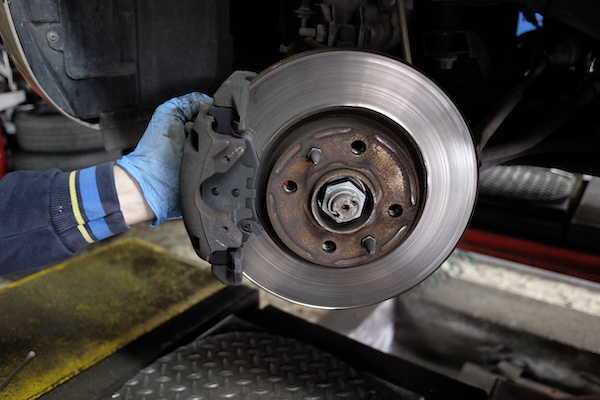
If you are going to take charge of your vehicle maintenance, the first part that you should look at is the braking system. All parts of your vehicle’s brake system need to work for your car to slow down and stop effectively. So please frequently have your brakes checked to ensure you and your loved ones are safe on the road. That said, there are many signs that indicate your brakes need to be serviced. From loud squeaks to leaking fluid, it can be difficult to miss. Let’s take a look at these red flags that could mean your brake system is compromised. Squeaking or Squealing If you catch a loud, high-pitched sound whenever you apply the brakes, it means that your brakes are worn down. Specifically, the brake pads let out a scream when they are bad. Brake pads have metallic wear indicators that will rub against the rotors when they’ve worn thin. When you catch your brakes being noisy, take your vehicle to our brake service shop. Grindi ... read more
Posted on 10/31/2022
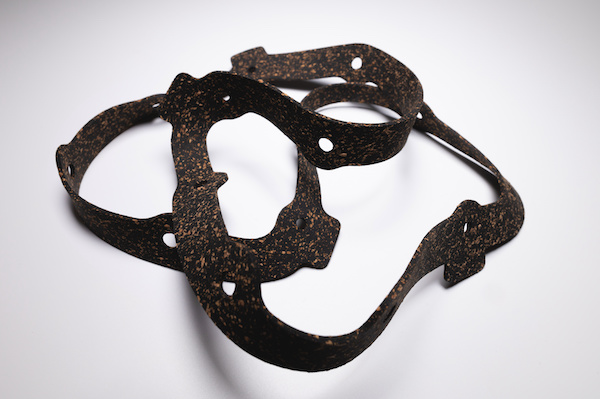
With so many car parts, it can be difficult to know which one is which, especially if you aren't an automotive technician and are speaking with a mechanic. If you're having issues with your vehicle, particularly related to your oil, knowing what an "oil pan gasket" is can be helpful. What Is an Oil Pan Gasket? An oil pan gasket creates a seal between the engine block and oil pain. It allows for the contraction and expansion of the engine's heat. The oil pan gasket also serves the purpose of preventing leaks, and it stops oil from entering other parts of the vehicle. The oil pan gasket also provides cushioning so the vibrations from the engine don't cause any damage. The kind of gasket you have depends on the composition of your automobile's oil pain. For instance, cars with a pressed steel pan will have a formed rubber gasket. On the other hand, vehicles with aluminum pans will have a liquid silicone gasket. Signs of an Oil Pan Gasket Problem Over tim ... read more
Posted on 9/26/2022
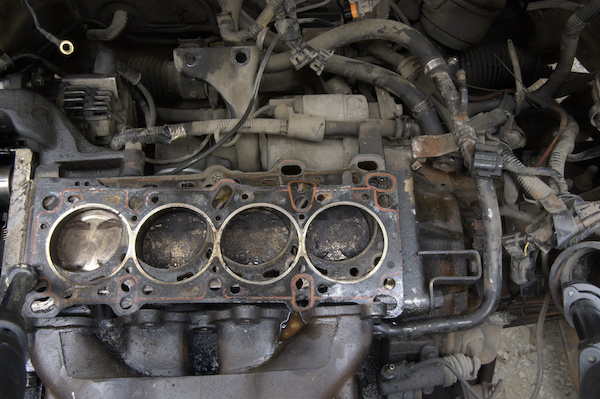
You may be wondering what a blown engine means and how you can handle the problem. A blown engine is one that's severely damaged and needs comprehensive repairs or replacement. Usually, the damage includes damage to a majority of engine parts, including a cracked engine block, snapped timing belt, defective intake and exhaust valves, and failed pistons. Causes of a Blown Engine It may be difficult to know when your car engine is blown, unless you're a car mechanic. Some warning signs can help you tell you have a blown engine. However, noticing one or more signs doesn't necessarily mean your engine is blown. Blue/White Exhaust Smoke Blue smoke flowing from your car's tailpipe can be an indicator you've had your car engine blow up. It's a sign that raw engine oil is dumped into the combustion chamber. If you notice white clouds emanating from the exhaust pipe, it may imply engine coolant is entering the combustion chamber. Rattling Noises in the Engine When ... read more
Posted on 8/29/2022
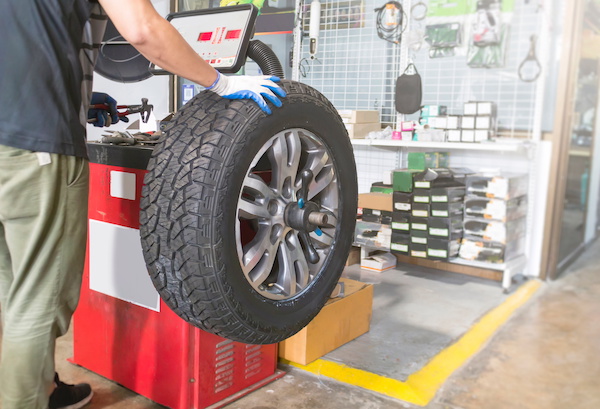
Whenever you have to replace your tires or change them from summer to winter tires, the first thing you should get done after buying the tires is to mount and balance them. Otherwise, they can cause an array of problems, including premature tire wear and wheel vibrations. To make sure your driving experience is smooth and optimized, you will need these two vital services. When car tires come straight from the factory, they are usually not perfectly round or balanced to fit your car’s standards. Tire mounting and balancing should always be left to professionals with the right qualifications and equipment. Mounting Vs. Balancing Tire mounting is simpler to understand – mounting is the process of putting the tires on the wheels and installing them onto the vehicle’s axles. Machinery is usually the easiest and most efficient method, and we have access to state-of-the-art machines at Dave’s Automotive. However, some people can do it by hand (not reco ... read more
Posted on 7/26/2022
.jpeg)
Most drivers and car owners find it frustrating when the engine misfires. It is crucial to understand how an engine can misfire, what causes it, and what to do when it misfires. What exactly happens when the engine misfires? To understand what an engine misfire is, you need to understand the simple version of how your engine works. All engines use combustion to generate power. Yes, your engine uses fire (from a spark) generated from fuel and oxygen. When your engine misfires, it can be because oxygen, power, or the spark are not introduced to the engine cylinders in time. The ignition process is delicate and requires all components to be presented at the right time for optimal functioning. One cylinder can misfire while the rest work perfectly, so your car will continue working, but you will notice a decrease in performance. How does it feel when the engine misfires? If your engine misfires, you may hear a pop sound accompanied by the smell of bur ... read more
Posted on 6/25/2022

Transmission fluid for your transmission is the same as motor oil for your engine – without the fluid, your car will simply not run. Transmission fluid is a lubricant that helps your transmission system operate smoothly without excess friction. Over time, the transmission fluid breaks down and becomes contaminated. To keep the fluid effectively doing what it is supposed to do, you will need to change the transmission fluid. What Happens If You Don’t Change Transmission Fluid When you lack a sufficient amount or an acceptable quality of transmission fluid, several things can go wrong. You accelerate the wear and tear on transmission components. As you may know, transmission parts are not cheap. Taking the preventative measures of replacing or flushing your transmission fluid can save you a considerable amount of time and money by limiting the need for repairs. When to Change Your Transmission Fluid When you should change your transmission fluid ultimately depends o ... read more
Posted on 5/26/2022

If you are a road trip enthusiast, getting your vehicle ready for some sun-drenched driving is crucial, especially as the road trip summer season approaches. It helps you avoid dust and dirt flurries, summer's high temperatures, and occasional rain taking a toll on your car's most essential systems. Using the following DIY tips and auto professional assistance, you can summarize your vehicle and help it run safely and smoothly through summer into fall. Summarizing Your Car on Your Own You can check your vehicle's tire pressure using a stick gauge from a gas station or a personal pressure gauge. When exposed to intense heat, vehicle tires' inside pressure increase and decrease significantly. So, monitor the tire pressure regularly to ensure it stays within your car's recommended range. Additionally, regularly monitor your engine's oil level as the engine often gets hotter in the summer, meaning it will need enough oil levels to remain lubricated. Here is how ... read more
Posted on 4/27/2022
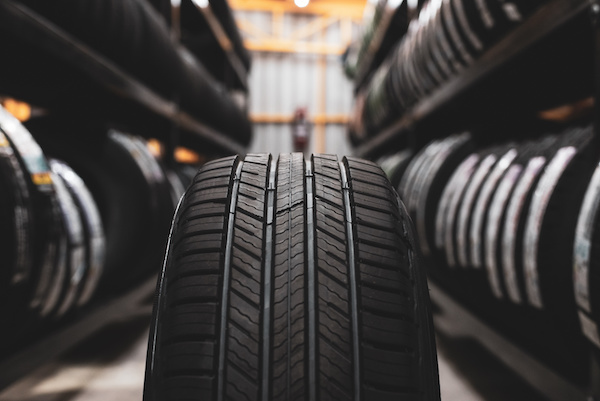
A tire bulge is a condition where the tire's sidewall starts to protrude outwards. This can happen for several reasons, but it's due to low tire pressure or hitting something sharp. Why Is A Tire Bulge Dangerous? A tire bulge is dangerous because it weakens the structure of the tire. This can cause the tire to burst or blow out while you're driving, leading to a serious accident. It's important to check your tires regularly for any bulging signs and keep them properly inflated. If you do notice a bulge, don't drive on it and have it fixed as soon as possible. What Causes A Tire Bulge? There are several reasons why a tire might develop a bulge. The most common reason is low tire pressure. When your tires are low on air, they're more likely to flex and bend, which can cause the sidewall to start protruding outwards. Another common cause of tire bulges is hitting something sharp. This could be a pothole, a curb, or even driving over rough terrain. When the tir ... read more